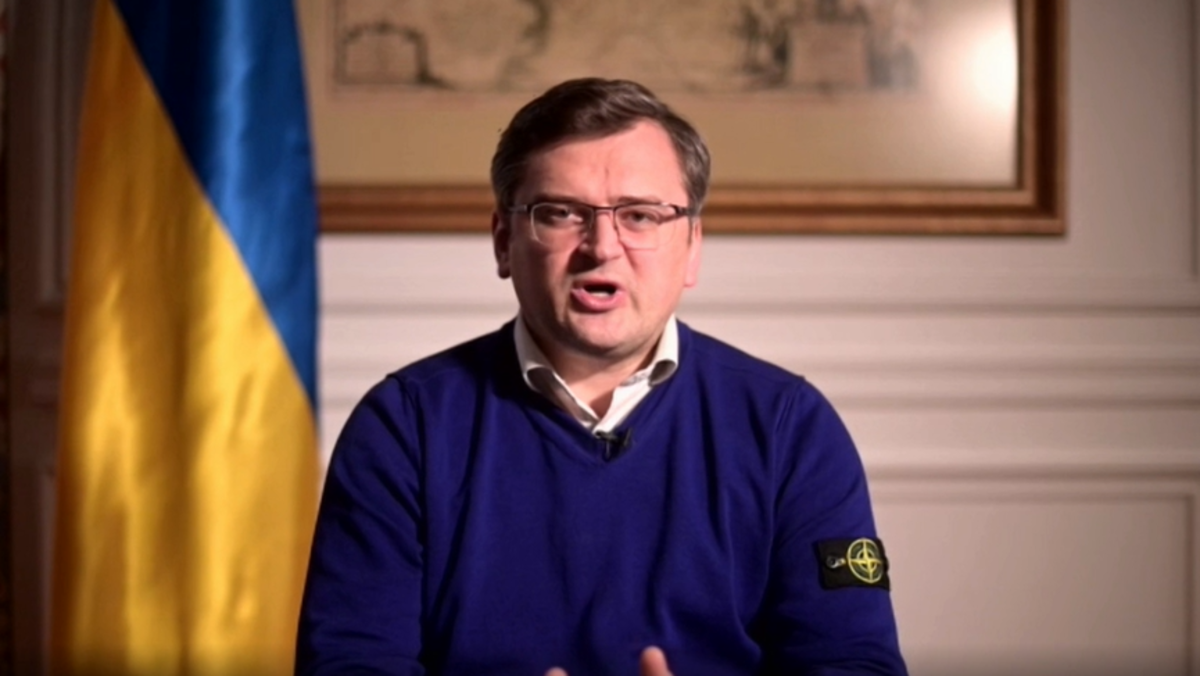Russia’s initial plan to take over Ukraine in three days failed, Ukrainian Foreign Minister Dmytro Kuleba said in a televised interview with Al Hadath on Tuesday, adding that Russia has since reshuffled its approach with new objectives.
For the latest headlines, follow our Google News channel online or via the app.
“The initial plan of Russia in Ukraine was to take entire country under control within a maximum of three days,” Kuleba said. “This plan definitely failed. The initial plan of Russia in Ukraine implied that by now Kyiv where I am speaking from would have been already under Russian control. This plan failed.”
Kuleba believes that this is why Russia had to shift its focus and change its objectives in Ukraine.
Russia launched a military invasion of Ukraine in what it called a “special operation” on February 24. Millions have been displaced and thousands have died since, leaving large parts of the country in ruins.
“[Russia was] forced to withdraw its army from Kyiv and send it to Donbas to Eastern Ukraine, where the largest battle is unfolding as we speak.”
Russia is adjusting its objectives based on what is happening on the ground and then “claims that everything goes according to the plan,” he said.
“Once the initial plan fails, Russia says, okay, everything goes according to the plan, but that’s only because they change the plan. But they are not telling anyone about that.”
What do Russia sanctions mean for Europe?
Western nations have imposed sanctions on Russia in solidarity over the Ukraine war as the conflict enters its seventh week.
The sanctions imposed include on military goods, flights, luxury goods, energy and financial institutions in an effort to cripple the country’s economy, trade, and resources. Several individuals – including Russian oligarchs – have been sanctioned worldwide and several multinational companies have halted their operations in Russia.
While the sanctions that have been imposed on Russia since the beginning of the Ukraine war were “meaningful,” they will only be felt within Russia in the “mid-to-long-term,” said Kubela.
“It’s true that they already put pressure on Russia and the economy, but it still has some money to finance the Russian war machine and therefore to finance the war,” said Kuleba, adding that the whole world, including Russia, Ukraine and the European Union, all understand that depriving the “Russia war machine of its resources means introducing gas and oil embargo.”
Kuleba acknowledged that while such a measure was necessary, it would be “painful” for the EU “as some of its members heavily depend on either Russian gas or oil or both.”
“Yesterday foreign affairs ministers of the European Union held an initial debate on the introduction of this oil and gas embargo. We will be working with them on this issue. Some other countries, as you know, like the United States, the United Kingdom, Canada, they already introduced the energy embargoes towards Russia.”
Kuleba stated that the EU was not only acting in favor of both Ukraine, but of its own member states as well.
“It is also acting to support itself, because the last thing the European Union wants is the spillover of the conflict [or] war. And, to achieve that, Russia must be stopped in Ukraine,” Kuleba said.
“The sooner we stop Russia the less damage will be inflicted on Europe and those who believe that this war is just the problem of Ukraine. They are completely wrong, and they don’t understand the history of Europe and the current reality. This war will spill over,” he warned.
Read more:
Russia using same tactics in Ukraine as in Syria: Ukraine FM Kuleba
UK sanctions Russian separatists in breakaway regions
Biden accuses Russia’s Putin of committing ‘genocide’ in Ukraine for first time

 World3 years ago
World3 years ago
 World3 years ago
World3 years ago
 Business11 months ago
Business11 months ago
 Entertainment7 years ago
Entertainment7 years ago
 World7 years ago
World7 years ago
 Entertainment7 years ago
Entertainment7 years ago






